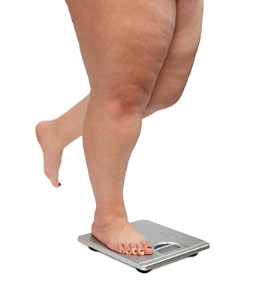 According to findings presented at the American College of Rheumatology Annual Meeting, patients with higher weights are more susceptible to foot pain. Instructor of Medicine Alyssa B. Dufour of Harvard Medical School and her colleagues studied 28 different measures over 57 years to identify the trajectories of weight in the Framingham Foot Study. After five such trajectories were established, patterns began to develop that showed a correlation between higher weight over time and higher levels of foot pain.
According to findings presented at the American College of Rheumatology Annual Meeting, patients with higher weights are more susceptible to foot pain. Instructor of Medicine Alyssa B. Dufour of Harvard Medical School and her colleagues studied 28 different measures over 57 years to identify the trajectories of weight in the Framingham Foot Study. After five such trajectories were established, patterns began to develop that showed a correlation between higher weight over time and higher levels of foot pain.
Obesity has become very problematic at this point in time and can have extremely negative effects on the feet. If you’re an obese individual and are concerned about your feet, contact Brent Harwood, DPM from Southeast Podiatry. Our doctor can provide the care you need to keep you pain-free and on your feet.
Obesity and Your Feet
Since your feet are what support your entire weight when standing, any additional weight can result in pain and swelling. Being overweight is one of the main contributors to foot complications.
Problems & Complications
Extra Weight – Even putting on just a few extra pounds could create serious complications for your feet. As your weight increases, your balance and body will shift, creating new stresses on your feet. This uneven weight distribution can cause pain, even while doing the simplest tasks, such as walking.
Diabetes – People who are overweight are at serious risk of developing type-2 diabetes, which has a drastic impact on the health of your feet. As you get older, your diabetes might worsen, which could lead to loss of feeling in your feet, sores, and bruises. You could also become more prone to various infections.
Plantar fasciitis – Pressure and stress that is placed on muscles, joints, and tendons can trigger plantar fasciitis, which is an inflammation of tissue that forms along the bottom of the foot.
If you have any questions please feel free to contact one of our offices located in Fairhope, Brewton, and Atmore, AL . We offer the newest diagnostic and treatment technologies for all your foot care needs.
Read more about How Obesity Affects Your Feet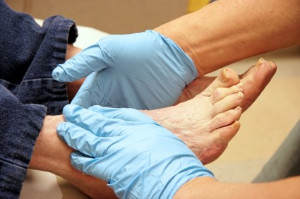 A breakthrough in treating foot pain is beginning to get attention, particularly in Pittsburgh, Pennsylvania. Doctors at the University of Pittsburgh Medical Center have been studying foot pad atrophy, which is when people lose the fat on the balls or heels of their feet. When bones no longer have the cushioning they need, they become bruised and inflamed. Husband and wife team Doctors Jeff and Beth Gusenoff have created a procedure called foot grafting, similar to liposuction, where fat removed from other parts of the body is injected into the bottoms of the feet. Patients are able to walk immediately after the procedure.
A breakthrough in treating foot pain is beginning to get attention, particularly in Pittsburgh, Pennsylvania. Doctors at the University of Pittsburgh Medical Center have been studying foot pad atrophy, which is when people lose the fat on the balls or heels of their feet. When bones no longer have the cushioning they need, they become bruised and inflamed. Husband and wife team Doctors Jeff and Beth Gusenoff have created a procedure called foot grafting, similar to liposuction, where fat removed from other parts of the body is injected into the bottoms of the feet. Patients are able to walk immediately after the procedure.
When dealing with systemic disease of the feet, it is extremely important to check the affected areas routinely so that any additional problems are caught quickly. If you have any concerns about your Feet contact Brent Harwood, DPM from Southeast Podiatry. Our doctor will assist you with all of your podiatric needs.
Systemic Diseases of the Feet
Systemic diseases affect the whole body, and symptoms usually are displayed in the feet. This condition can make a patient’s ability to walk unbearable. Systemic diseases include gout, diabetes mellitus, neurological disorders, and arthritis.
Gout – is caused by an excess of uric acid in the body. Common symptoms include pain, inflammation, and redness at the metatarsal/phalangeal joint of the base big toe. Gout can be treated by NSAIDs to relieve pain and inflammation, and other drugs that lower the acid levels in the body.
Diabetes mellitus – is an increase in the level of blood sugar that the body cannot counteract with its own insulin. Failure to produce enough insulin is a factor in Diabetes.
Diabetes of the Feet
Diabetic Neuropathy – may lead to damaged nerves and affect the feet through numbness and loss of sensation.
Peripheral Vascular Disease – can restrict the blood flow to the feet, and often times lead to amputation of the feet.
If you have any questions please feel free to contact one of our offices located in Fairhope, Brewton, and Atmore, AL . We offer the newest diagnostic and treatment technologies for all your foot care needs.
Read more about Systemic Diseases of the Foot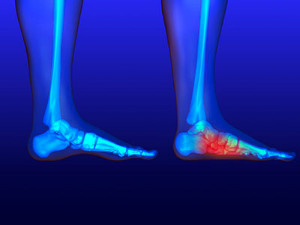 Flat foot is a condition that commonly affects young children, caused by a collapse in the medial longitudinal arch of the foot and sagging of the heel valgus. In most cases, the condition resolves itself as the child grows older; the arch typically forms between the third and fifth years of life. Diagnosis of the condition involves the careful examination of the child’s foot, , and joints. The child may be asked to dangle their feet in the air or stand on their tiptoes. Treatment often revolves around monitoring the condition for possible progression, as the condition can correct itself as previously mentioned.
Flat foot is a condition that commonly affects young children, caused by a collapse in the medial longitudinal arch of the foot and sagging of the heel valgus. In most cases, the condition resolves itself as the child grows older; the arch typically forms between the third and fifth years of life. Diagnosis of the condition involves the careful examination of the child’s foot, , and joints. The child may be asked to dangle their feet in the air or stand on their tiptoes. Treatment often revolves around monitoring the condition for possible progression, as the condition can correct itself as previously mentioned.
Flatfoot is a condition many people suffer from. If you have flat feet, contact Brent Harwood, DPM from Southeast Podiatry. Our doctor will treat your foot care needs.
What Are Flat Feet?
Flatfoot is a condition in which the arch of the foot is depressed and the sole of the foot is almost completely in contact with the ground. About 20-30% of the population generally has flat feet because their arches never formed during growth.
Conditions & Problems:
Having flat feet makes it difficult to run or walk because of the stress placed on the .
Alignment – The general alignment of your legs can be disrupted, because the move inward which can cause major discomfort.
Knees – If you have complications with your knees, flat feet can be a contributor to arthritis in that area.
Symptoms
Treatment
If you are experiencing pain and stress on the foot you may weaken the posterior tibial tendon, which runs around the inside of the .
If you have any questions please feel free to contact one of our offices located in Fairhope, Brewton, and Atmore, AL . We offer the newest diagnostic and treatment technologies for all your foot care needs.
Read more about Flat Feet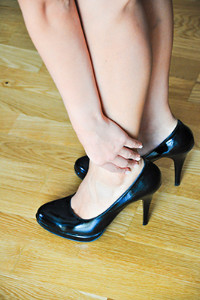 One of the most common causes of foot pain for women stems from the frequent wearing of high heels. Though they may be stylish, heels can contribute to all sorts of problems. Due to the angle that the foot is forced to maintain, circulation can be slowed or even cut off. This can lead to leg muscle issues, a stiffened Achilles tendon, and resulting spasms and pain. If you are suffering any kind of pain from wearing high heels, consult a doctor. In the meantime, try to limit the amount of time that you wear them. If you have to wear heels for work, take them off as soon as you get home. Stretching may also help some of the symptoms, but reducing the amount of walking around you do in high heels is the best way to prevent the pain.
One of the most common causes of foot pain for women stems from the frequent wearing of high heels. Though they may be stylish, heels can contribute to all sorts of problems. Due to the angle that the foot is forced to maintain, circulation can be slowed or even cut off. This can lead to leg muscle issues, a stiffened Achilles tendon, and resulting spasms and pain. If you are suffering any kind of pain from wearing high heels, consult a doctor. In the meantime, try to limit the amount of time that you wear them. If you have to wear heels for work, take them off as soon as you get home. Stretching may also help some of the symptoms, but reducing the amount of walking around you do in high heels is the best way to prevent the pain.
High heels have a history of causing foot problems. If you have any concerns about your feet or , contact Brent Harwood, DPM from Southeast Podiatry. Our doctor can provide the care you need to keep you pain-free and on your feet.
Effects of High Heels on the Feet
High heels are popular shoes among women because of their many styles and societal appeal. Despite this, high heels can still cause many health problems if worn too frequently.
Which Parts of My Body Will Be Affected by High Heels?
What Kinds of Foot Problems Can Develop from Wearing High Heels?
How Can I Still Wear High Heels and Maintain Foot Health?
If you want to wear high heeled shoes, make sure that you are not wearing them every day, as this will help prevent long term physical problems. Try wearing thicker heels as opposed to stilettos to distribute weight more evenly across the feet. Always make sure you are wearing the proper shoes for the right occasion, such as sneakers for exercising. If you walk to work, try carrying your heels with you and changing into them once you arrive at work. Adding inserts to your heels can help cushion your feet and absorb shock. Full foot inserts or metatarsal pads are available.
If you have any questions please feel free to contact one of our offices located in Fairhope, Brewton, and Atmore, AL . We offer the newest diagnostic and treatment technologies for all your foot care needs.
Read more about Effect of High Heels on the Feet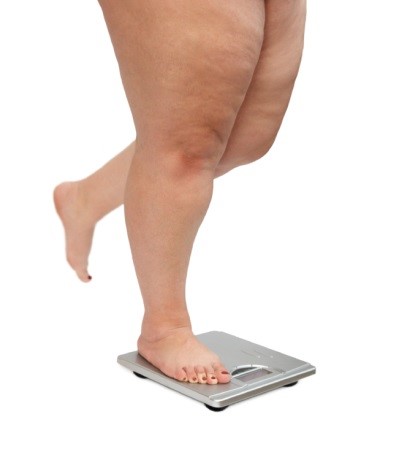 The holidays would not be complete without the endless gathering of family and friends, enjoying vast amounts of delicious food, decadent sweets, and festive cocktails. However, self-indulging in these treats go hand-in-hand with a heightened risk of health problems. Not only does weight gain increase your risk for things like heart attack and stroke, but it affects your body on a musculoskeletal level. Individuals who may be overweight or obese must also take into account the extra pressure they are placing on their feet, in particular, their arch. The amount of force placed on our feet can cause much pain and damage to the , leg, and hip due to improper weight distribution. It is important to always keep yourself on a good exercise routine to lower your risk of weight-gain, especially around the holiday season.
The holidays would not be complete without the endless gathering of family and friends, enjoying vast amounts of delicious food, decadent sweets, and festive cocktails. However, self-indulging in these treats go hand-in-hand with a heightened risk of health problems. Not only does weight gain increase your risk for things like heart attack and stroke, but it affects your body on a musculoskeletal level. Individuals who may be overweight or obese must also take into account the extra pressure they are placing on their feet, in particular, their arch. The amount of force placed on our feet can cause much pain and damage to the , leg, and hip due to improper weight distribution. It is important to always keep yourself on a good exercise routine to lower your risk of weight-gain, especially around the holiday season.
Obesity has become very problematic at this point in time and can have extremely negative effects on the feet. If you’re an obese individual and are concerned about your feet, contact one of our podiatrists from Southeast Podiatry. Our doctors can provide the care you need to keep you pain-free and on your feet.
Obesity and your Feet
Since your feet are what support your entire weight when standing, any additional weight can result in pain and swelling. Being overweight is one of the main contributors to foot complications.
Problems & Complications
Extra Weight – Even putting on just a few extra pounds could create serious complications for your feet. As your weight increases, your balance and body will shift, creating new stresses on your feet. This uneven weight distribution can cause pain, even while doing the simplest tasks, such as walking.
Diabetes – People who are overweight are at serious risk of developing type-2 diabetes, which has a drastic impact on the health of your feet. As you get older, your diabetes might worsen, which could lead to loss of feeling in your feet, sores, and bruises. You could also become more prone to various infections.
Plantar fasciitis – Pressure and stress that is placed on muscles, joints, and tendons can trigger plantar fasciitis, which is an inflammation of tissue that forms along the bottom of the foot.
If you have any questions, please feel free to contact one of our offices located in Fairhope, Brewton, and Atmore, AL. We offer the newest diagnostic and treatment technologies for all your foot care needs.
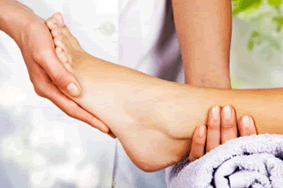 Morton’s neuroma is a foot condition that often affects middle-aged women, especially those who wear narrow shoes. While benign, the condition can be very painful; pain typically affects the front of the foot and extends to the toes. Pain flare-ups tend to occur in response to irritation, trauma, or excessive pressure. Morton’s neuroma pain can be made worse by continual walking, especially while wearing narrow shoes. Morton’s neuroma can be diagnosed through a number of methods including clinical examinations, MRIs, or ultrasound. If you suspect you have Morton’s neuroma, be sure to contact your podiatrist.
Morton’s neuroma is a foot condition that often affects middle-aged women, especially those who wear narrow shoes. While benign, the condition can be very painful; pain typically affects the front of the foot and extends to the toes. Pain flare-ups tend to occur in response to irritation, trauma, or excessive pressure. Morton’s neuroma pain can be made worse by continual walking, especially while wearing narrow shoes. Morton’s neuroma can be diagnosed through a number of methods including clinical examinations, MRIs, or ultrasound. If you suspect you have Morton’s neuroma, be sure to contact your podiatrist.
Morton’s Neuroma is a very uncomfortable condition to live with. If you think you have Morton’s neuroma, contact one of our podiatrists from Southeast Podiatry. Our doctors will treat your foot concerns.
Morton’s Neuroma
Morton's neuroma is a painful foot condition that commonly affects the areas between the second and third or third and fourth toe, although other areas of the foot are also susceptible. Morton’s neuroma is caused by an inflamed nerve in the foot that is being squeezed and aggravated by surrounding bones.
What Increases the Chances of having Morton’s Neuroma?
Morton’s neuroma is a very treatable condition. Orthotics and shoe inserts can often be used to alleviate the pain on the forefront of the feet. In more severe cases, corticosteroids can also be prescribed. In order to figure out the best treatment for your neuroma, it’s recommended to seek the care of a podiatrist who can diagnose your condition and provide different treatment options.
If you have any questions, please feel free to contact our office located in Fairhope, Brewton, and Atmore, AL. We offer the newest diagnostic and treatment technologies for all your foot care needs.
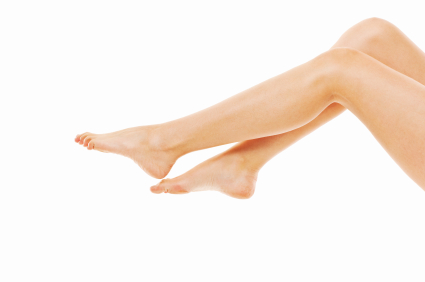 As winter approaches, we all know how important it is to make sure to keep our skin from getting too dry. Just as we use balms and moisturizers for our face and hands, there are many ways to protect against dry and cracked feet and heels. Glycerin lotions are some of the best remedies for combatting dryness. Hydrogenated oils are also very effective moisturizers, and can be used not only on your feet, but your and legs too. In addition, fruits such as bananas and pineapples have plentiful amounts of helpful enzymes to ensure smooth and crack-free Feet.
As winter approaches, we all know how important it is to make sure to keep our skin from getting too dry. Just as we use balms and moisturizers for our face and hands, there are many ways to protect against dry and cracked feet and heels. Glycerin lotions are some of the best remedies for combatting dryness. Hydrogenated oils are also very effective moisturizers, and can be used not only on your feet, but your and legs too. In addition, fruits such as bananas and pineapples have plentiful amounts of helpful enzymes to ensure smooth and crack-free Feet.
Cracked heels are unsightly and can cause further damage to your shoes and feet. If you have any concerns, contact one of our podiatrists from Southeast Podiatry. Our doctors can provide the care you need to keep you pain-free and on your feet.
Cracked Heels
Cracked heels are unappealing, and make it harder for you walk around in sandals. Not only may they look bad, but they can also tear stockings, socks, and wear out your shoes. There are several methods to help restore a cracked heel and prevent further damage.
How do you get them?
Dry skin is the number one culprit in creating cracked heels. Many athletes, walkers, joggers, and even swimmers suffer from cracked heels. Age and skin oil production play a role to getting cracked heels as well.
Promote Healing
Over the counter medicines can help, especially for those that need instant relief, or who suffer from chronic dry feet.
Wear Socks – wearing socks with medicated creams, helps lock in moisture so it can stay on longer.
Moisturizers – applying it both day and night will help alleviate dryness which causes cracking.
Pumice Stones – these remove dead skin, and then you can massage cream onto your foot. This way the cream will be absorbed. The skin needs to be exfoliated; therefore the outer layer dead skin needs removal.
Change in Diet
Eating healthy, with a well-balanced diet, will give the skin a fresh and radiant look. Your body responds to what kinds of food you ingest. Omega-3 fatty acids and zinc supplements will also help with skin tissue.
Most importantly seek a health professional for foot care if something is wrong or doesn’t seem to be working. A podiatrist will help you with any questions or information needed.
If you have any questions, please feel free to contact one of our offices located in Fairhope, Brewton, and Atmore, AL. We offer the newest diagnostic and treatment technologies for all your foot care needs.
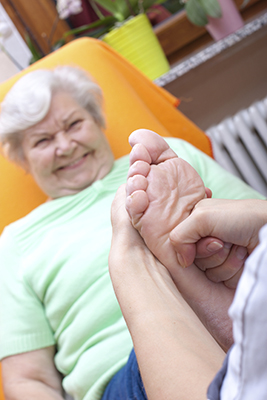 For those who have been diagnosed with Diabetes, or those with family members who have, taking care of your feet is something that should be taken very seriously. Because of the lack circulation in the feet and legs, numbness can occur. This could prevent noticing that there is even a problem. That, coupled with inordinately slow healing, can cause infections to persist, spread, and even lead to amputation. Make sure to look out for signs of foot problems. If you have numbness, sores, or any type of slow-healing wound, see a doctor immediately.
For those who have been diagnosed with Diabetes, or those with family members who have, taking care of your feet is something that should be taken very seriously. Because of the lack circulation in the feet and legs, numbness can occur. This could prevent noticing that there is even a problem. That, coupled with inordinately slow healing, can cause infections to persist, spread, and even lead to amputation. Make sure to look out for signs of foot problems. If you have numbness, sores, or any type of slow-healing wound, see a doctor immediately.
Diabetic foot care is important in preventing foot ailments such as ulcers. If you are suffering from diabetes or have any other concerns about your feet, contact one of our podiatrists from Southeast Podiatry. Our doctors can provide the care you need to keep you pain-free and on your feet.
Diabetic Foot Care
Diabetes affects millions of people every year. Diabetes can damage blood vessels in many parts of the body, including the feet. Because of this, taking care of your feet is essential if you have diabetes, and having a podiatrist help monitor your foot health is highly recommended.
The Importance of Caring for Your Feet
Patients with diabetes should have their doctor monitor their blood levels because blood sugar levels play such a huge role in diabetic care. Monitoring these levels on a regular basis is highly advised.
It is always best to inform your healthcare professional of any concerns you may have regarding your feet, especially for diabetic patients. Early treatment and routine foot examinations are keys to maintaining proper health, especially because severe complications can arise if proper treatment is not applied.
If you have any questions, please feel free to contact one of our offices located in Fairhope, Brewton, and Atmore, AL. We offer the newest diagnostic and treatment technologies for all your foot care needs.
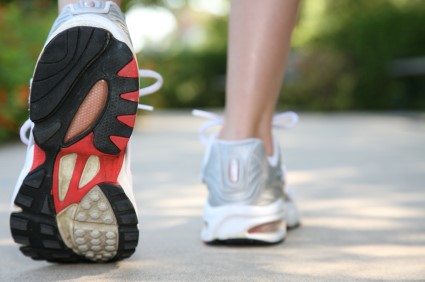 By the time the average American reaches age 50, they are expected to have accumulated 75,000 miles on their feet. If you’re an avid runner, you may have more miles on your feet, so it’s especially important to optimize proper foot care. Knowing your body type, running style, your feet and the kinds of activity you routinely follow are all aspects to consider when maintaining foot care. Proper footwear is also vital in making sure that your feet are comfortable and healthy. Our feet change as we age, expanding and potentially becoming flatter.
By the time the average American reaches age 50, they are expected to have accumulated 75,000 miles on their feet. If you’re an avid runner, you may have more miles on your feet, so it’s especially important to optimize proper foot care. Knowing your body type, running style, your feet and the kinds of activity you routinely follow are all aspects to consider when maintaining foot care. Proper footwear is also vital in making sure that your feet are comfortable and healthy. Our feet change as we age, expanding and potentially becoming flatter.
Exercising your feet regularly with the proper foot wear is a great way to prevent injuries. If you have any concerns about your feet, contact one of our podiatrists from Southeast Podiatry. Our doctors can provide the care you need to keep you pain-free and on your feet.
How to Prevent Running Injuries
Many common running injuries are caused by overuse and overtraining. When the back of the kneecap starts wearing out and starts causing pain in your knee, this is commonly referred to as runner’s knee. Runner’s knee is a decrease in strength in your quadriceps and can occur if you’re not wearing properly fitted or supporting shoes. To prevent runner’s knee, focusing on hip strengthening is a good idea, as well as strengthening your quads to keep the kneecaps aligned.
What Are Some Causes of Running Injuries?
- One cause of a common running injury is called iliotibial band syndrome.
- Plantar fasciitis is also another common injury.
- Stress fractures can occur from overtraining, lack of calcium, or even your running style.
Best Ways to Prevent Running Injuries
- Wear footwear that fits properly and suits your running needs.
- Running shoes are the only protective gear that runners have to safeguard them from injury.
- Make a training schedule. Adding strengthening exercises as well as regular stretching can help keep you strong and limber and can lessen the possibility of injuries.
- Stretching keeps muscles limber, this will help you gain better flexibility.
If you have any questions, please feel free to contact one of our offices located in Fairhope, Brewton, and Atmore, AL. We offer the newest diagnostic and treatment technologies for all your foot care needs.
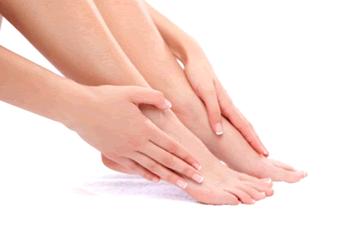 If you’re experiencing stiffness and pain in the soles of your feet that typically becomes more prominent during the mornings, you may have plantar fasciitis. Plantar fasciitis can be described as a foot condition that results from overuse of the plantar fascia, the tissue that runs along the soles of your feet. Excessive stress on this area can lead to inflammation. Being overweight, having flat feet or high arches, pregnancy and improper footwear such as flip flops are also factors in the development of plantar fasciitis. Treat your condition by icing your feet, stretching your muscles and having proper rest by avoiding any strenuous activity.
If you’re experiencing stiffness and pain in the soles of your feet that typically becomes more prominent during the mornings, you may have plantar fasciitis. Plantar fasciitis can be described as a foot condition that results from overuse of the plantar fascia, the tissue that runs along the soles of your feet. Excessive stress on this area can lead to inflammation. Being overweight, having flat feet or high arches, pregnancy and improper footwear such as flip flops are also factors in the development of plantar fasciitis. Treat your condition by icing your feet, stretching your muscles and having proper rest by avoiding any strenuous activity.
Plantar fasciitis can be very painful and inconvenient. If you are experiencing heel pain or symptoms of plantar fasciitis, contact one of our podiatrists from Southeast Podiatry. Our doctors can provide the care you need to keep you pain-free and on your feet.
What is Plantar Fasciitis?
Plantar fasciitis is the inflammation of the thick band of tissue that runs along the bottom of your foot, known as the plantar fascia, and causes mild to severe heel pain.
What Causes Plantar Fasciitis?
· Excessive running
· Non-supportive shoes
· Overpronation
· Repeated stretching and tearing of the plantar fascia
How Can It Be Treated?
· Conservative measures – anti-inflammatories, ice packs, stretching exercises, physical therapy, orthotic devices
· Shockwave therapy – sound waves are sent to the affected area to facilitate healing and are usually used for chronic cases of plantar fasciitis
· Surgery – usually only used as a last resort when all else fails. The plantar fascia can be surgically detached from the heel
While very treatable, plantar fasciitis is definitely not something that should be ignored. Especially in severe cases, speaking to your doctor right away is highly recommended to avoid complications and severe heel pain. Your podiatrist can work with you to provide the appropriate treatment options tailored to your condition.
If you have any questions, please feel free to contact one of our offices located in Fairhope, Brewton, and Atmore, AL. We offer the newest diagnostic and treatment technologies for all your foot care needs.
 The fifth metatarsal is the long bone that connects to the pinky toe on the outside of the foot. This bone is especially prone to fracture for people involved in any sort of prolonged physical activity, especially team sports. This is one of the most common injuries in soccer, but many other athletes also suffer this injury. It is vitally important to never ignore any type of foot pain, on the field or off. Professionally, there is immense pressure to perform, which can lead to dependency on prescription painkillers. But the truth is, we all need our feet, not just star athletes. The best course of action is always to contact a podiatrist and get to the root of the problem.
The fifth metatarsal is the long bone that connects to the pinky toe on the outside of the foot. This bone is especially prone to fracture for people involved in any sort of prolonged physical activity, especially team sports. This is one of the most common injuries in soccer, but many other athletes also suffer this injury. It is vitally important to never ignore any type of foot pain, on the field or off. Professionally, there is immense pressure to perform, which can lead to dependency on prescription painkillers. But the truth is, we all need our feet, not just star athletes. The best course of action is always to contact a podiatrist and get to the root of the problem.
Activities where too much pressure is put on the feet can cause stress fractures. To learn more, contact one of our podiatrists from Southeast Podiatry. Our doctors will treat your foot concerns.
Dealing with Stress Fractures of the foot
The Stress Fractures occur on the foot when muscles in these areas weaken from too much or too little use. Then the Feet lose support when walking or running from the impact of the ground. Since there is no protection the bones receive the full impact of each step. The stress on the feet causes cracks to form in the bones, thus called stress fractures.
What are Stress Fractures?
Stress fractures occur frequently in individuals whose daily activities cause great impact on the Feet. Stress factors are most common among:
-runners
-people affected with Osteoporosis
-play tennis or basketball
-gymnastics
-high impact workouts
Symptoms
Pain from the fractures occur in the area of the fractures, and can be constant or intermittent. It will often cause sharp or dull pain with swelling and tenderness. Engaging in any kind of activity which involves in high impact will aggravate pain.
If you have any questions, please feel free to contact our office located in Fairhope, Brewton, and Atmore, AL. We offer the newest diagnostic and treatment technologies for all your foot care needs.
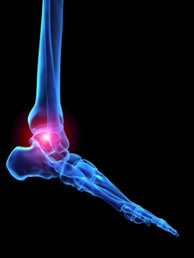 Arthritis is a condition that affects not only the hands and wrists, but Feet as well. There are more than 50 million people in the US that are currently diagnosed with arthritis and there are a lot of different opinions on how to effectively treat the disease. Frequently it is difficult to parse through what does work and what doesn’t. Arthritis can be painful, especially when it affects the foot area. When trying to manage this pain, it is important to be informed on what types of treatments are effective, keeping in mind that some can actually be harmful. The CDC has recently released a report that outlines some good and bad treatments for this chronic ailment.
Arthritis is a condition that affects not only the hands and wrists, but Feet as well. There are more than 50 million people in the US that are currently diagnosed with arthritis and there are a lot of different opinions on how to effectively treat the disease. Frequently it is difficult to parse through what does work and what doesn’t. Arthritis can be painful, especially when it affects the foot area. When trying to manage this pain, it is important to be informed on what types of treatments are effective, keeping in mind that some can actually be harmful. The CDC has recently released a report that outlines some good and bad treatments for this chronic ailment.
Arthritis can be a difficult condition to live with. If you are seeking treatment, contact one of our podiatrists from Southeast Podiatry. Our doctors can provide the care you need to keep you pain-free and on your feet.
Arthritic Foot Care
Arthritis is a joint disorder that involves inflammation of different joints in your body, such as in your feet. Arthritis is often caused by a degenerative joint disease and causes mild to severe pain in all affected areas. On top of this, swelling and stiffness in the affected joints can also be a common symptom of arthritis.
In many cases, wearing ill-fitting shoes can worsen the effects and pain of arthritis. Wearing shoes that have a lower heel and extra room can help your feet feel more comfortable. In cases of rheumatoid arthritis, the arch in your foot may become problematic. Buying shoes with proper arch support that contour to your feet can help immensely.
Alleviating Arthritic Pain
It is best to see your doctor for the treatment that is right for your needs and symptoms. Conditions vary, and a podiatrist can help you determine the right method of care for your feet.
If you have any questions, please feel free to contact one of our offices located in Fairhope, Brewton, and Atmore, AL. We offer the newest diagnostic and treatment technologies for all your foot care needs.
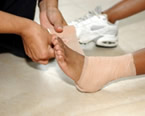 Senior Kyle Crutchmer of Oklahoma State University’s wrestling team had his season cut short due to an injury to his right foot. Nevertheless, he still has a great chance to achieve All-American status for the second time at the 174-pound weight class. Six of Oklahoma State University’s matchups are against preseason top 25 teams, four of which are also in the top 10. In regards to the upcoming competition, Crutchmer states, “We’ve been training all summer and fall for this.”
Senior Kyle Crutchmer of Oklahoma State University’s wrestling team had his season cut short due to an injury to his right foot. Nevertheless, he still has a great chance to achieve All-American status for the second time at the 174-pound weight class. Six of Oklahoma State University’s matchups are against preseason top 25 teams, four of which are also in the top 10. In regards to the upcoming competition, Crutchmer states, “We’ve been training all summer and fall for this.”
Sports related foot injuries need proper treatment before players can go back to their regular routines. For more information, contact one of our podiatrists from Southeast Podiatry. Our doctorscan provide the care you need to keep you pain-free and on your feet.
Sport Related foot Injuries
foot injuries are a common occurrence when it comes to athletes of any sport. While many athletes dismiss the initial aches and pains, the truth is that ignoring potential foot injuries can lead to serious problems. As athletes continue to place pressure and strain the area further, a mild injury can turn into something as serious as a rupture and may lead to a permanent disability. There are many factors that contribute to sports related foot injuries, which include failure to warm up properly, not providing support or wearing bad footwear. Common injuries and conditions athletes face, including:
Sports-related injuries are commonly treated using the RICE method. This includes rest, applying ice to the injured area, compression and elevating the . More serious sprains and injuries may require surgery, which could include arthroscopic and reconstructive surgery. Rehabilitation and therapy may also be required in order to get any recovering athlete to become fully functional again. Any unusual aches and pains an athlete sustains must be evaluated by a licensed, reputable medical professional.
If you have any questions please feel free to contact one of our offices located in Fairhope, Brewton, and Atmore, AL. We offer the newest diagnostic and treatment technologies for all your foot care needs.
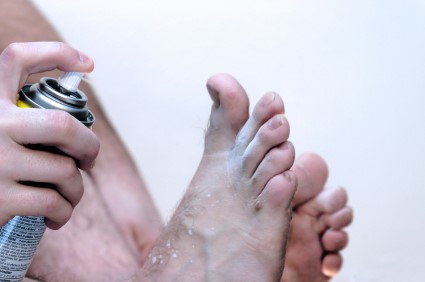 Odor emanates from people’s feet due to sweat or a lack of good hygiene practices. Bacteria can form as a result of either of these two reasons, and it may produce a strong odor. They tend to form around areas that are moist on your feet, and they feed on skin oils and dead cells. When bacteria thrive, they eliminate waste in the form of organic acids, which causes feet to smell. In order to keep your feet bacteria free, you should change your socks daily, keep your toenails clipped and clean, dry feet thoroughly after showering, and swab in between your toes with rubbing alcohol.
Odor emanates from people’s feet due to sweat or a lack of good hygiene practices. Bacteria can form as a result of either of these two reasons, and it may produce a strong odor. They tend to form around areas that are moist on your feet, and they feed on skin oils and dead cells. When bacteria thrive, they eliminate waste in the form of organic acids, which causes feet to smell. In order to keep your feet bacteria free, you should change your socks daily, keep your toenails clipped and clean, dry feet thoroughly after showering, and swab in between your toes with rubbing alcohol.
Athlete’s foot is an inconvenient condition that can be easily reduced with the proper treatment. If you have any concerns about your Feet,contact one of our podiatrists from Southeast Podiatry. Our doctors can provide the care you need to keep you pain-free and on your feet.
Athlete’s Foot: The Sole Story
Athlete's foot, also known as tinea pedis, can be an extremely contagious foot infection. It is commonly contracted in public changing areas and bathrooms, dormitory style living quarters, around locker rooms and public swimming pools, or anywhere your feet often come into contact with other people.
Solutions to Combat Athlete’s Foot
Athlete’s foot can cause many irritating symptoms such as dry and flaking skin, itching, and redness. Some more severe symptoms can include bleeding and cracked skin, intense itching and burning and even pain when walking. In the worst cases, athlete’s foot can cause blistering as well. Speak to your podiatrist for a better understanding of the different causes of athlete’s foot, as well as helping you figure out which treatment options are best for you.
If you have any questions, please feel free to contact one of our offices located in Fairhope, Brewton, and Atmore, AL. We offer the newest diagnostic and treatment technologies for all your foot care needs.